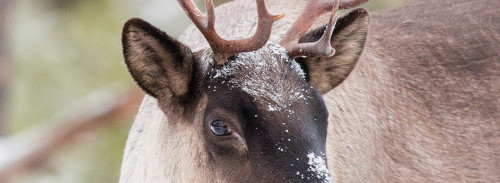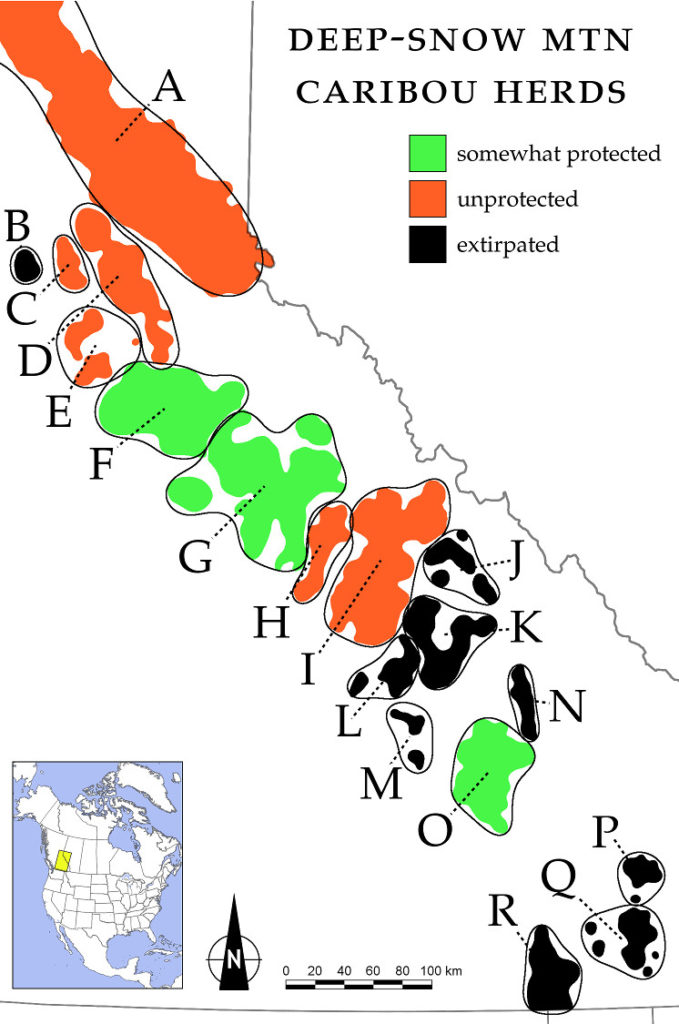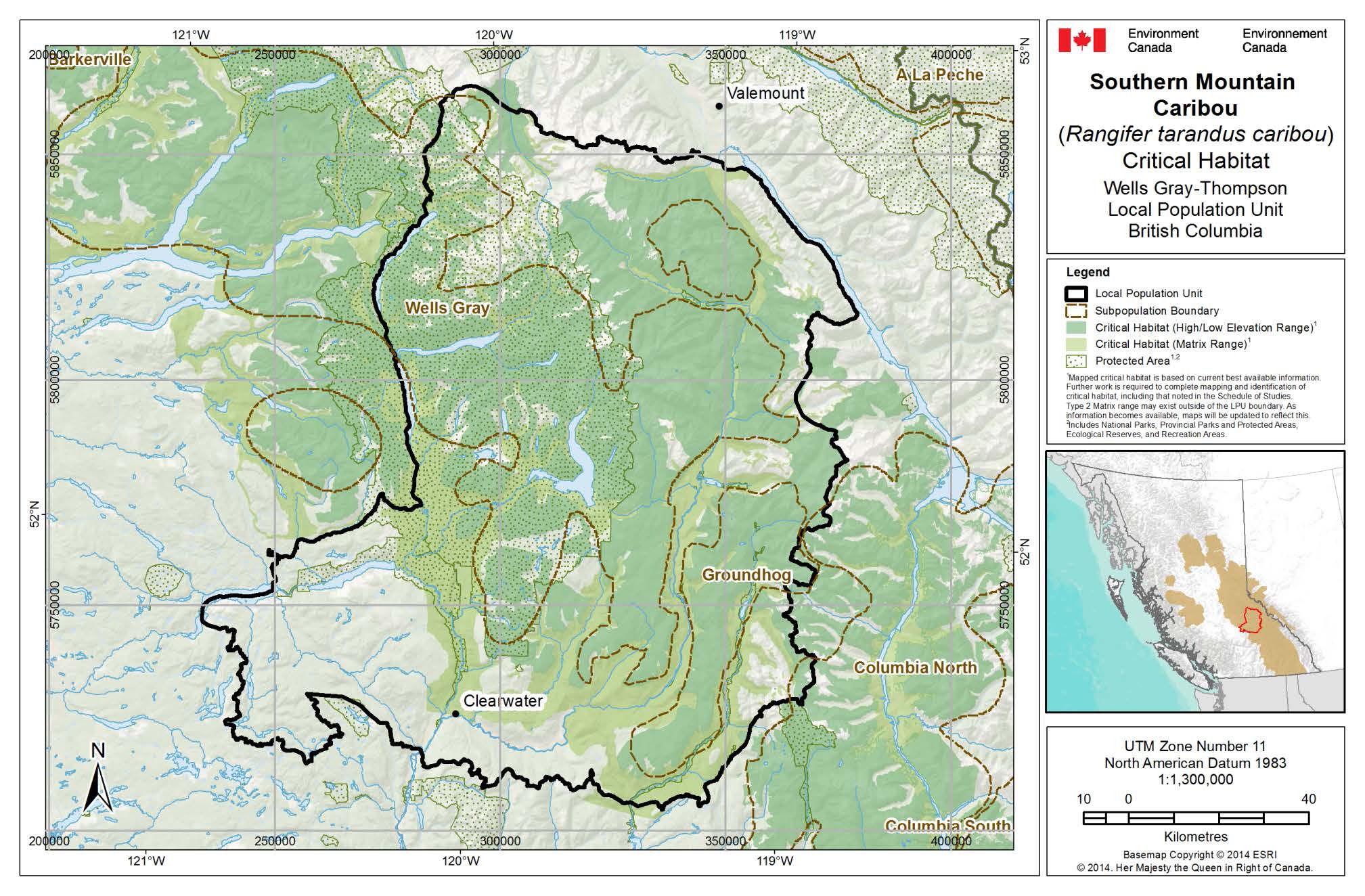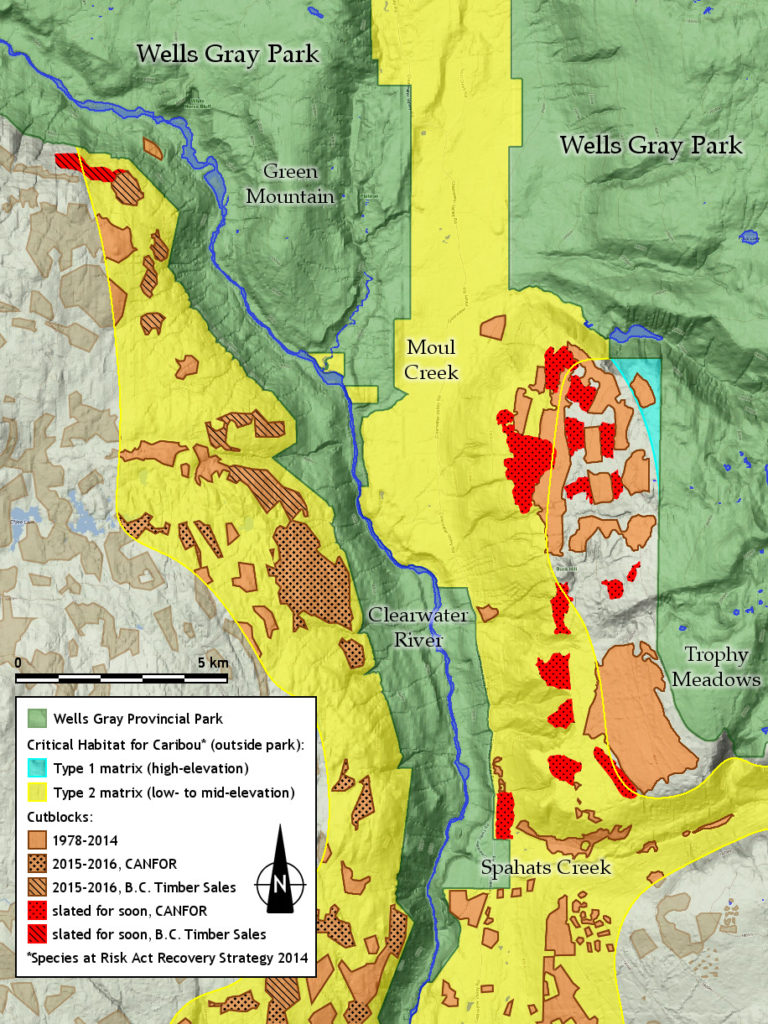
It’s What Greta Thunberg Would Do.
It’s widely accepted that the ultimate cause of Deep-Snow Caribou decline is habitat loss, and that the ultimate cause of habitat loss is a series of retrogressive resource policies enacted by the BC Liberal government under Gordon Campbell, beginning with the Forest and Range Practices Act in 2004 and later followed by its Caribou Recovery Implementation Plan in 2007.
Taken together, these initiatives entrained the loss of about 40% of the global Deep-Snow Caribou population in about ten years. More recently, these and other corporate-friendly policies have caused many Deep-Snow Caribou herds to blink out, especially in the southern portion of the range. Meanwhile, farther north, most herds are now in gradual or rapid decline.
In 2005, there were 18 herds of Deep-Snow Caribou in the world. Today, there are half that number. Of these, three have fewer than 50 animals, the minimum number accepted as viable. This leaves six of 18 herds still more or less viable. Here they are, for the record: Hart Ranges (formerly 716 animals/now 375), North Caribou Mountains (299/146), Barkerville (90/72), Wells Gray North (259/200), Wells Gray South (242/111) and Columbia North (280/147). Not much wiggle room, clearly.

The future of Canada’s Deep-Snow Caribou hangs in the balance. In 2005, there were still 18 herds of these caribou in the world. Today, there are nine, here shown in orange and green. Of these, the herds in orange are almost certainly doomed to early extirpation owing to overcutting. Only the three herds shown in green – Quesnel Highlands (F), Wells Gray South (G) and Central Selkirks (O) – overlap significantly with protected areas and, for this reason, must be cornerstone to any viable conservation strategy for Deep-Snow Caribou. But only if their respective protected areas are expanded to encompass their winter foraging needs.
Whatever this website does or does not accomplish, it at least bears witness to an incontrovertible fact: that whether through acts of commission, like the BC government’s 2007 and 2018 caribou “recovery” plans, or by acts of omission, like the Federal government’s refusal to enforce Canadian law under the Species at Risk Act, Canada’s political leaders and their advisors have led this country to the brink of a long-foreseen, wholly unnecessary extinctionary episode – a shameful contribution to the Sixth Global Extinction now overtaking life on Earth.
One crucial outcome of these and other acts of commission and omission has been the loss of most conservation options formerly available to government. Gone are the once-continuous oldgrowth forests these caribou need in order to thrive. Gone is any possibility of restoring those forests at time scales meaningful to the extirpation schedules of most herds. Gone is their much-needed spatial separation from predators increasingly funnelled by increasing numbers of clearcuts into their prime summer habitat. And going, going, gone are oldgrowth-dependent tree-dwelling hair lichens they so desperately need four to six months of each year.
In light of these and other challenges imposed by progressive habitat loss, former viable options for long-term caribou conservation have lately been reduced to a single strategy as yet curiously untried: to augment the conservation value of existing protected areas within the range. Henceforth, any earnest attempt by the BC and federal governments to sustain Deep-Snow Caribou must where possible build on existing protections.
Hope for Deep-Snow Caribou
Admittedly, BC governments since 2001 have had little interest in creating or expanding BC Parks system. Yet if Deep-Snow Caribou are to survive into the long term, this must change. The only remaining way forward is to optimize protections already in place, whether by means of park expansions and/or through creation of linkages between and among existing parks.
Happily, there’s an opening for the establishment of new protected areas at the federal level and, assuming the BC government under John Horgan will cooperate, it’s big enough to drive a logging truck through. Thus, to meet its commitments to the United Nations Convention on Biological Diversity, Canada must very soon protect 17% of its land base, which means seven percent increase over current protections. To dedicate even a tiny fraction of the coming new protections to the welfare of the Deep-Snow Caribou would go a long way toward turning a corner on this government-mediated crisis.
As the BC and federal governments are well aware, environmentalists have proposed protection for four areas on behalf of Deep-Snow Caribou, including two proposals by the Valhalla Wilderness Society. While most of these proposals are unlikely to secure Deep-Snow Caribou recovery and long-term survival on their own, it’s fair to say that any recovery plan that refrains from including these cornerstones to Deep-Snow Caribou survival is mere window dressing. Frankly it’s hard to imagine new protected areas more urgently needed, extinction being what it is.
This is a start. The rest will be up to Canadians, especially young Canadians, who urgently need to cultivate a relation of caring about a world that’s coming unraveled before their very eyes. In Canada, Deep-Snow Caribou stand at the leading edge of that unraveling process, with its profoundly disturbing prophecy: that what befalls the Deep-Snow Caribou today, whether for better or for worse, will surely befall the rest of us tomorrow.
Seven Actions that Help Build a Future for Deep-Snow Mountain Caribou
(1) Help get the story of Canada’s betrayal of the public interest out there. strong>Like this website.
(2) Please use the materials assembled in this one-stop website to generate memes, research projects, term papers, letters to the editor, op-eds, book chapters, whatever. This too helps get the message “out there”.
(3) Call upon BC premier John Horgan to establish a moratorium on industrial logging within federally designated critical habitat for caribou until such time as the resident herds show definite signs of recovery. At a minimum, the moratorium area should correspond to lands mapped as ’critical habitat’ in the final 2014 Federal Recovery Strategy for Southern Mountain Caribou. As an example, this screenshot from page 87 shows the area mapped for the Wells Gray South herd. Recovery Strategy for the Woodland Caribou, Southern Mountain population.
(4) Tell the BC government to stop the needless slaughter of wolves. Four hundred and sixty-three wolves were killed on behalf of caribou in the winter of 2019/2020. No further wolves or cougar or deer or moose should be sacrificed unless in connection with substantive additional protection of existing oldgrowth forests, especially at lower elevations, and above all adjacent to large protected areas like Bowron, Bugaboo, Cariboo Mountains, Glacier, Goat Range, Kakwa, Wells Gray, West Twin and Willmore parks , as shown at right.
(5) Encourage Canada’s prime minister Justin Trudeau to meet Canada’s commitment to the United Nations Convention on Biological Diversity through inclusion of Deep-Snow Caribou habitat sufficient to enable and sustain their recovery, paying special attention to herds whose ranges broadly overlap with large protected areas.
(6) Make your call for new protected areas for the Deep-Snow Caribou into a personal project or, better still, make it a group project – a project that can, by the way, help friends, families, clubs, organizations, even entire neighbourhoods build common cause around the beautiful act of caring.
(7) Do you like writing snail-mail letters? If so, probably the most powerful way to help build a future for Deep-Snow Caribou is to send a letter to Premier John Horgan and/or Prime Minister Justin Trudeau.
- The Honourable John Horgan
Premier of British Columbia
Box 9041
Station PROV GOVT
Victoria, BC V8W 9E1
premier@gov.bc.ca - Be sure to include your name and mailing address!
- The Honourable Justin Trudeau
Prime Minister of Canada
Office of the Prime Minister
80 Wellington Street
Ottawa, ON K1A 0A2 - Again, be sure to include your name and mailing address!
Suggested Key Points
- You are concerned for the welfare of the endangered Deep-Snow Mountain Caribou – Canada’s only uniquely Canadian large mammal.
- You support the call for a moratorium on industrial logging within federally designated critical habitat for caribou.
- The global population of the Deep-Snow Caribou has declined by about 40% since 2005.
- Logging within federally designated critical habitat for caribou is widely accepted as the ultimate cause of this decline.
- The proposed moratorium area was designated in 2014 as critical habitat for caribou by the Federal government under the Species at Risk Act.
- Notwithstanding this, BC’s Ministry of Forest, Land and Natural Resource Operations has since then awarded hundreds of logging permits within the proposed moratorium area, covering tens of thousands of hectares.
- Because Deep-Snow Caribou occur exclusively in B.C., the BC and Canadian governments have ultimate responsibility for their survival and recovery.
Personal Perspectives
- Your experience of oldgrowth rainforests within the range of Deep-Snow Caribou, your enjoyment of untouched landscapes, comparisons with other regions of the world you’ve lived in or visited, the importance of wild places to contemporary society losing touch with the living green world, etc.
- Government-driven extinction in Canada – one of the world’s largest, wealthiest nations – sends a dangerous message to other world leaders charged with conserving biodiversity
Final Paragraph
- Remind Premier John Horgan/Prime Minister Justin Trudeau that protecting the Canadian endemic Deep-Snow Caribou is an important step in helping BC/Canada live up its commitments to endangered species legislation and the U.N. Convention on Biological Diversity respectively.
If Sending an E-mail to John Horgan, CC One or More of the Following
- Hon. George Heyman, Minister of Environment & Climate Change Strategy
ENV.Minister@gov.bc.ca - Hon. Doug Donaldson, Minister of Forests, Lands, Natural Resource Operations & Rural Development
FLNR.Minister@gov.bc.ca - Hon. Adam Olsen, Green Party Interim Leader
adam.olsen.mla@leg.bc.ca - Hon. Jonathan Wilkinson, Federal Minister of Environment & Climate Change
ec.ministre-minister.ec@canada.ca


